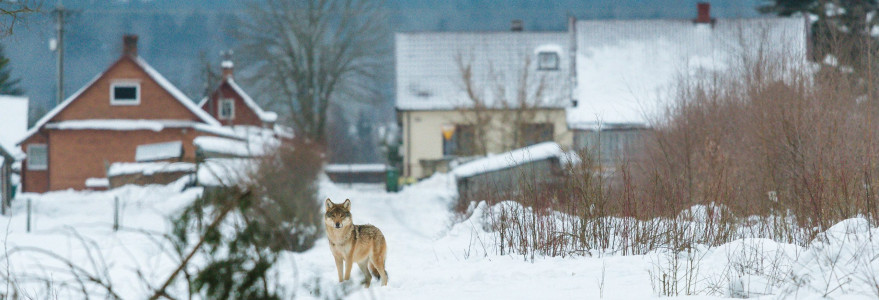Increased activity and a more frequent nocturnal lifestyle – these were the habits of mammals during lockdowns during the COVID-19 pandemic, according to the results of the study conducted by a team of scientists with the participation of researchers from the University of Warsaw. The findings were published in “Nature Ecology & Evolution”.
Animals react differently to human presence. Some species see humans as a threat, while for others they are a source of protection or food. Animal behaviour also changes depending on whether they encounter humans in their natural habitats or in human-modified landscapes. However, the differences between particular groups of animals are not well understood.
A team of scientists with the participation of Kinga Stępniak and Dr Tom A. Diserens (received his doctoral title in 2023) from the University of Warsaw analysed material collected through trap-cameras. They recorded 163 mammal species living in twenty-one countries. The researchers compared data on the animals’ habits before the pandemic and during the lockdowns to see what impact changes in human activity had on animal behaviour.
The authors found that mammal activity in more developed areas (such as cities) increased when human activity was higher. Mammals showed less activity in less developed areas. However, differences between animal groups were noticeable.
“As human activity increased, large herbivore activity also increased, while carnivore activity decreased. Among omnivorous wild boars, American black bears and brown bears, activity declined in human-modified habitats. Food sources for these species include fruit trees and bins, which can be risky when human activity is high,” a doctoral candidate in the UW’s doctoral candidate in the UW’s Doctoral School of Exact and Natural Sciences from the UW’s Faculty of Biology Kinga Stępniak explained.
The authors also noticed that in modified landscapes where human activity was high, large predators were more likely to have a nocturnal lifestyle.
“The COVID-19 pandemic contributed to an ‘anthropause’, a time of reduced human activity. This has provided us with insights into mammalian behaviour, which may help to better protect species that are particularly sensitive to humans,” the researcher added.
Publication details
Beirne, Christopher et al. (2023), “Mammal responses to global changes in human activity vary by trophic group and landscape”, Nature Ecology & Evolution, https://doi.org/10.1038/s41559-024-02363-2.



